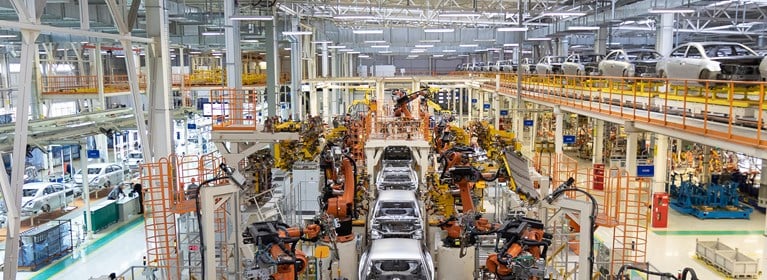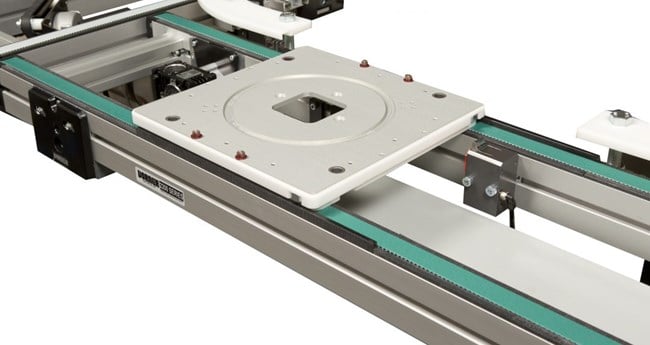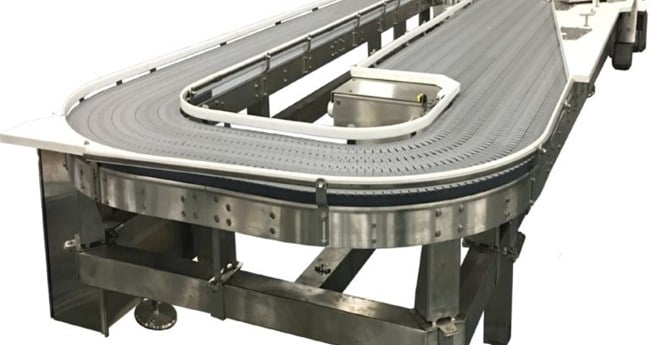Automotive Conveyor Solutions by Columbus McKinnon

The automotive industry, with its high delivery requirements and often tight margins, has experienced tremendous growth over the past few decades. Conveyors can help ease these demands by moving heavy and bulky parts quickly and efficiently, improving safety in the factory and increasing productivity. To remain profitable and to meet the ever-increasing demands of customers in the automotive industry, effective and efficient automated production flow solutions are essential.
growth over the past few decades. Conveyors can help ease these demands by moving heavy and bulky parts quickly and efficiently, improving safety in the factory and increasing productivity. To remain profitable and to meet the ever-increasing demands of customers in the automotive industry, effective and efficient automated production flow solutions are essential.
Industrial and automation conveyors — also known as industrial conveyor belts, industrial conveyor systems, and industrial conveyor belt systems — move parts and products from one place to another during specific phases of the production cycle, making them a crucial component. Industrial conveyors serve every stage of manufacturing, from inspection and production to assembly and packaging. In the automotive industry, conveyors are particularly useful in accumulation, assembly automation, and part handling. Either fabric belted or modular belted, both types of conveyors increase efficiency, reduce costs, and ensure smooth operations.
Automotive Conveyor Systems
Moving individual products on belts, chains, skate wheels, or roller, a pallet handling conveyor can be modified for a variety of environments. Learn how our pallet conveyor systems can create specific routing paths for certain products throughout an entire manufacturing process.
An accumulation conveyor is a system used to control the flow of products along a production line. A high-throughput operation can benefit significantly from accumulation conveyors because they allow processes to be slowed down or sped up at different points within the same operation, enabling operation flexibility in case of bottlenecks.
Garvey's on-demand distribution systems operate like a superhighway — the products circulate continuously until they encounter an empty machine. Utilizing patented accumulation technology, on-demand distribution systems enable you to keep your production line running and increase throughput by feeding parallel processing machines as needed.
Additional Automotive Conveyor Options
In addition to being wear-resistant, belt conveyors can transport sharp-edged products. A Dorner 2200 series conveyor is resistant to cutting and allows for the drainage of coolants and oils, whereas urethane belts can be damaged by sharp edges on metal parts or scraps.
With floor space in automotive manufacturing and packaging facilities continuing to shrink, it is imperative that conveyors be able to make tight turns in and around existing equipment. For small part transfer in and around tight spaces, along with pallet assembly integrations, Dorner's flexible chain conveyors are designed to move products horizontally and vertically, improving product movement capabilities when floor space is limited.



 Central America-Andean-Caribbean - EN
Central America-Andean-Caribbean - EN










